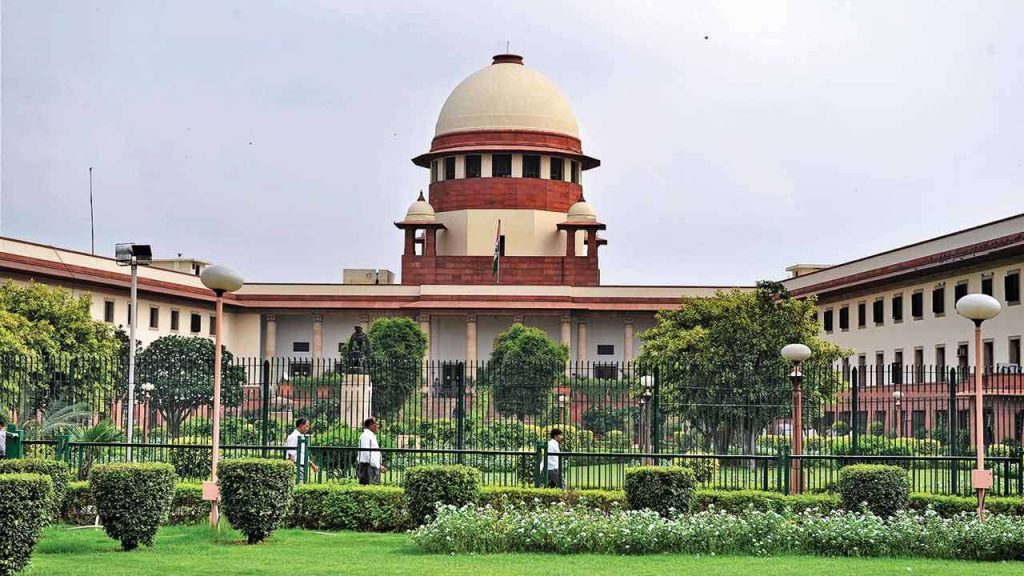New Delhi: We are a “people’s court” and giving a hearing is part of the healing process, the Supreme Court said Monday while asking the members of the Bar in violence-hit Manipur to ensure no lawyer is denied access to the court proceedings in the state.
A bench headed by Chief Justice D Y Chandrachud said the state of Manipur, in consultation with the acting chief justice of the high court there, shall ensure that video-conferencing facilities are set up in all the nine judicial districts of the state so lawyers or litigants desirous of appearing before the high court through virtual mode are able to address the court.
The direction from the bench, also comprising Justices J B Pardiwala and Manoj Misra, came after it was alleged that lawyers belonging to a particular community were not allowed to appear before the high court there.
The apex court also asked the lawyers appearing in the matter to stop “mud-slinging” against any community by the rival communities in the court.
The bench was hearing arguments on a batch of pleas, including those seeking court-monitored probe into cases of violence, besides measures for relief and rehabilitation.
When one of the lawyers said he also has many things to to say before the court, the bench observed, “Equally, as we know that we are a people’s court. There is a limit to our remit as well.”
“Giving a hearing is part of a healing process,” the CJI observed.
When an advocate said lawyers were being prevented from appearing before the high court, the bench said, “That is one side of the picture. We don’t believe that High Court of Manipur is not functioning”.
“Are lawyers from any community prevented from appearing before the high court?” the bench asked the president of the Manipur High Court Bar who was present.
The bar president said every lawyer is allowed in the court and they can appear either physically or through virtual mode.
“Next time, just produce before us a compilation of sample orders indicating that lawyers from all communities have appeared before the high court,” the bench said.
“We want to be satisfied. Our conscience has to be satisfied that members of the Bar are not prevented, irrespective of their community …,” the bench said.
Solicitor General Tushar Mehta, appearing for the Centre and the Manipur government, told the bench that lawyers were not being prevented from appearing before the high court there.
He said there appears to be a conscious attempt to “aggravate the situation” unfortunately using the forum of the court.
“It is our duty to ensure that court process is not misused. Equally, our conscience has to be satisfied that there is no barrier to access to justice,” the bench said.
Mehta referred to an affidavit filed by the chief secretary of Manipur in the apex court.
He said as per the affidavit, between August 30 and September 14, a total of 2,683 cases were listed for hearing before various benches of the high court there and several virtual hearing log-in were recorded.
The bench noted that nine judicial districts in the state of Manipur cover all the 16 districts in the state.
It said if video-conferencing facilities are already available, they be operationalised so as to ensure that any member of the bar or litigant in person desirous of appearing before the high court through virtual platform is able to address the court.
The bench said the video-conferencing facility be operationalised within a period of one week from the date of its order.
“The members of the Bar shall ensure that no lawyer who seeks to address the court is denied access to the court proceedings,” it said, adding any violation of its order shall be treated as a contempt of the directions of the court.
Manipur descended into chaos and violence in May over a high court order directing the state government to consider including the non-tribal Meitei community in the list of Scheduled Tribes.
This order led to rampant ethnic clashes. More than 170 people have been killed and several hundred others injured since ethnic violence first broke out in the state May 3 when a ‘Tribal Solidarity March’ was organised in hill districts to protest against the majority Meitei community’s demand for ST status.
PTI
